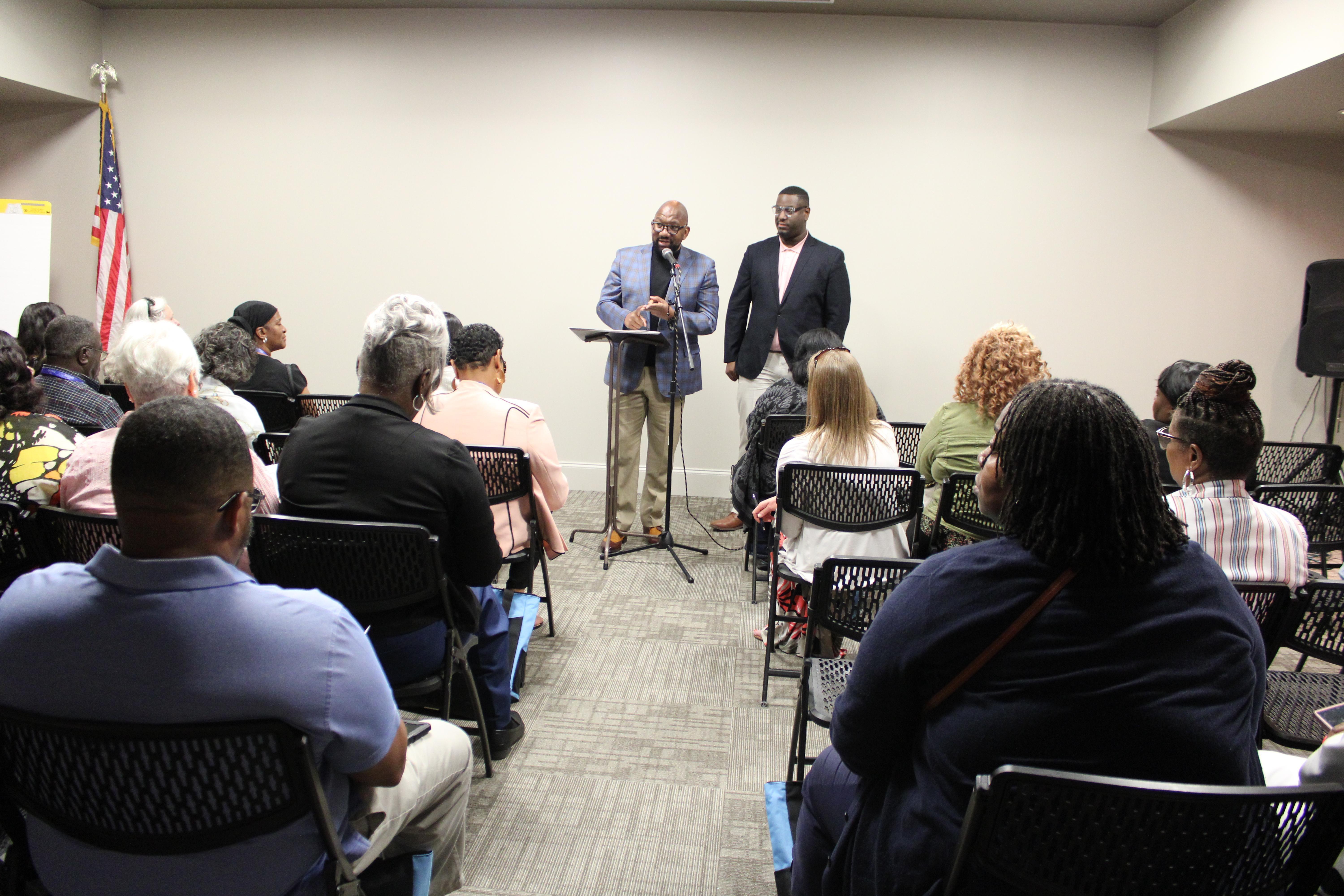Calvin Bogan is a student pastor at West Point Baptist Church in Hattiesburg. He describes helping a father who was opposed to counseling understand the treatment options available for his daughter who had recently attempted suicide.
“Although we could not initially agree on counseling, we did agree on the fact that we want to do what's best for the child,” he said.
Eventually, Bogan said he helped the father understand that although his expertise as a pastor was limited in the mental health field, counseling could provide the resources the young woman needed.
“While he did not trust the system, he trusted the church,” Bogan said. “So we were able to get them started.”
Wendy Bailey is the executive director of the Mississippi Department of Mental Health.
“For many, many years, mental health has been surrounded by silence and by stigma, especially in faith based communities,” she said. “We want to break down those barriers and bring that out into the open.”
Bailey says identifying what resources someone experiencing a mental health crisis has access to can be challenging in Mississippi.
“We're a very rural state, so sometimes it can be difficult to access treatment, and then sometimes it's just difficult when you're in a crisis situation to know is where do I go,” she said.
Bailey says the state’s mental health department uses the Congregational Recovery Outreach Program, or CROP, to help faith communities connect their congregants to mental healthcare.
“We go into churches and we train the congregation and the faith based leaders, and then we also connect them with the community mental health center so they can make a referral directly for someone to receive counseling or any type of health that they might need,” she said. Not just mental health, but also treatment for substance use disorders. Many times substance use is looked at as a moral failing, and it's not. It's a disease.”
Gloria Morrow is a clinical psychologist from Los Angeles, who was a featured keynote speaker at the event. She tells MPB that understanding the intersection between faith and mental health recovery is pivotal.
“I think it's critically important because every person that we serve in the mental health system comes with their own cultural experiences,” she said. “One of those experiences many times can be faith.”
Morrow says if clinicians don't understand the role of spirituality in recovery, and they don't attend to a particular cultural issue, they sometimes miss the mark and can cause faith-based communities to avoid psychology.
“Faith leaders sometimes over-rely on spirituality and faith, and they don't really welcome outside professionals, psychologists,” she said. “So a meeting like this brings those two together, and helps them to see that they both are necessary in treating the whole person.”
Some of the ways a person can be diagnosed can be examined through their faith, Morrow says.
“For example, a person may get diagnosed with a thought disorder, psychosis, when they're talking about hearing the voice of God,” she said. “You know, that could just be their spiritual language. Sometimes, people in the secular profession don't understand what that is. If they haven't had training, then they're quick to diagnose. So it can lead to misdiagnosis, it can lead to cultural misunderstanding.”
May is Mental Health Awareness Month.




